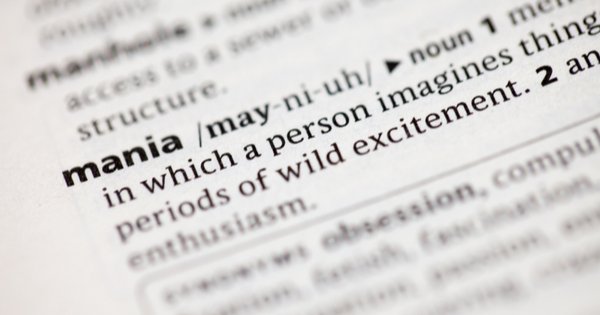I remember thinking during an episode that, ”If everyone could feel this way they would never do drugs”.

Having schizoaffective disorder bipolar type means having schizophrenia and bipolar disorder. One of the most difficult parts of having this disorder was the fact that I overlooked the bipolar facet of what I was going through. For years I worked on limiting the schizophrenia symptoms and dealing with them directly but I recently learned that my bipolar symptoms and schizophrenia symptoms have been amplifying one another. Therefore I have made a more concerted effort to work on reducing and limiting mania as well and working on the illness from multiple angles and not just focusing on the psychotic features.

When I have been struggling with symptoms of schizophrenia it has had a strong impact on my mood making my life very emotionally difficult. In psychosis, it’s similar to having a stuffy nose where your mind feels bogged down and muddled and it is difficult to think and communicate the same way your nose would feel when congested if you were trying to breathe. This caused some major depressive symptoms because I wanted to think and function like everyone else and I felt my psychosis was the reason I was unable to have some of the things I wanted in life at times.
Also, I directly related some of my social inhibitions and inabilities to connect with people as being directly caused by psychosis thus triggering negative emotions. When I had these negative emotions it increased my stress levels because I put a lot of pressure on myself to get healthier in order to have a fuller life and a happy life. This added stress would cause hallucinations and added psychosis and an inability to think clearly. Having more stress has always directly correlated to an increase and/or amplification of my symptoms and less stress has done the latter.
After this happened I would be strongly motivated to work on my mental health which happened in the form of journaling and writing. I had a delusion for a while that I had to write to improve my mental health but also that I had to write in order to cause mania for myself. Mania can be difficult because it’s a constant adrenaline rush throughout the entire day. It pulses through your thyroid gland and into your heart and your jugular vein and it is constant euphoria but also has a tinge of anxiety along with it.
It was a very addicting feeling and I remember thinking during an episode that,” If everyone could feel this way they would never do drugs”. I used to work twelve hour days on my feet while feeling mania without needing more than a half hour break day after day for five to six days a week every week going non-stop. I went 36 straight hours working without sleep while on a mania trip.
For years I had an unconscious thought from my episodes to cause mania for myself and others. I had to search back during times in my episodes to realize that one of the origins of my mania was a result of wanting to become a writer. Making this realization helped me to neutralize the thought that I needed to cause mania for myself and or everyone through writing because it felt so good. There were also other delusions that were causing me to perpetuate my mania and addressing these thoughts one by one and making them into zeros started reducing the mania. I originally thought I needed the mania because it felt so good and I was afraid of depression because in middle school I had nearly committed suicide because of it. I established that I wasn’t going to commit suicide and be extremely depressed without having mania which took time.
I also realized that getting rid of mania helped me to be more stable mood wise and this clarified my thinking a great deal. I had learned that mania contributes to psychosis and my theory on this was that a constant stream of adrenaline rushing to my mind was causing me to think dysfunctionally. I also think that when I was addicted to mania I was thinking and saying things that would perpetuate my mania which was also problematic in my thought process and contributed to more psychosis. I had one thought in particular that I had to do anything and everything to the absolute best of my ability to be a writer and also to have mania. During episodes when I was doing this it was my main trigger for mania and the genesis of a lot of obsessive behaviors like washing my hands excessively to the point of them having tons of tiny little cuts and looking like they had been moved through buckets of glass.
This extreme perfectionism coupled with a fear of not having the addictive adrenaline rush of mania created a great deal of mental rigidity in social situations. I was very unaccepting of other people’s mistakes and I was way overly disciplined in what I allowed myself to say and also in how careful I was with every little thing I said and did. This self hyper-vigilance in social situations bogged me down immensely and made it nearly impossible to have a cordial conversation with others because I was constantly trying to correct them and also trying to be as perfect as I could with everything I said and did. This also contributed to my stress levels increasing and caused hallucinations and other psychotic symptoms that were very difficult to navigate while simultaneously trying to hold a good conversation with someone.
—
